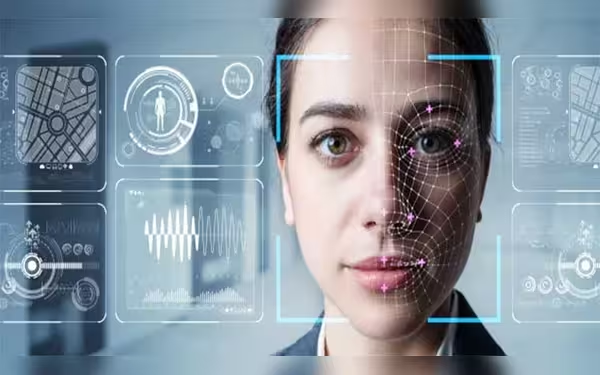Saturday, October 5, 2024 10:28 PM
Facial Recognition Technology Set to Replace Traditional Identification Methods
- Facial recognition to replace keys and passports.
- Schools may use facial recognition for security.
- Privacy concerns must be addressed with technology.
 Image Credits: dunyanews.tv
Image Credits: dunyanews.tvFacial recognition technology is expected to replace keys, passports, and tickets within five years, enhancing convenience and security.
In recent years, technology has made significant strides, particularly in the realm of security and identification. One of the most exciting advancements is facial recognition technology, which is poised to revolutionize how we access various services and secure our identities. Within the next five years, experts predict that facial recognition will replace traditional methods such as keys, passports, and tickets, making our lives more convenient and secure.
Facial recognition works by analyzing the unique features of a person's face, allowing devices and systems to identify individuals quickly and accurately. This technology is already being integrated into smartphones, with companies like Apple leading the charge by launching biometric technology that uses facial recognition to unlock devices. This means that instead of fumbling for keys or remembering passwords, users can simply look at their phones to gain access.
Moreover, the potential applications of facial recognition extend far beyond personal devices. In the near future, schools may implement this technology to enhance security and streamline processes. For instance, students could use their faces to check in and out of school, eliminating the need for physical ID cards. This could not only improve safety but also reduce the chances of lost or forgotten items.
In the healthcare sector, facial recognition is set to play a crucial role in confirming medical records. Imagine visiting a doctor and, instead of presenting a card or filling out forms, your face is scanned to access your medical history. This would not only save time but also enhance security, ensuring that sensitive information is only accessible to authorized personnel.
While the benefits of facial recognition are clear, it is essential to consider the implications of such technology. Privacy concerns are at the forefront of this discussion, as many individuals worry about how their facial data will be used and stored. It is crucial for companies and governments to establish clear guidelines and regulations to protect citizens' privacy while harnessing the advantages of this innovative technology.
The future of facial recognition technology looks promising, with the potential to replace keys, passports, and tickets within the next five years. As we embrace these advancements, it is vital to strike a balance between convenience and privacy. By doing so, we can ensure that this technology serves to enhance our lives while safeguarding our personal information.












